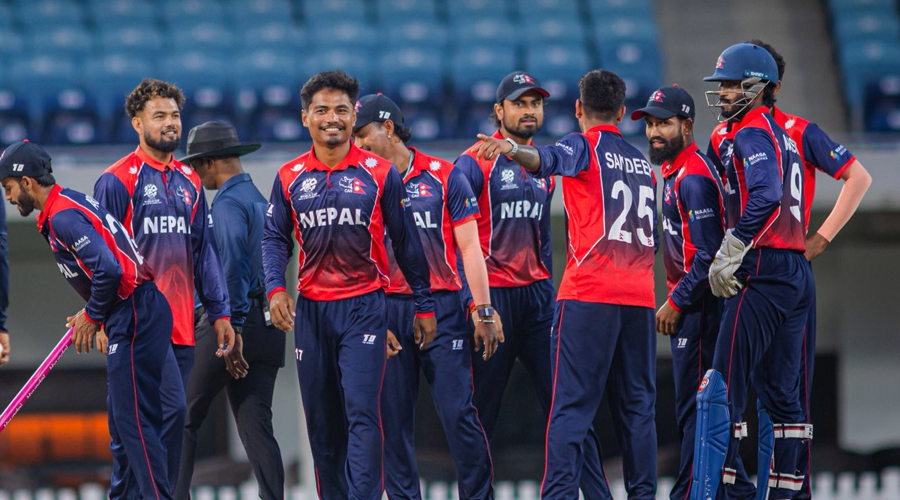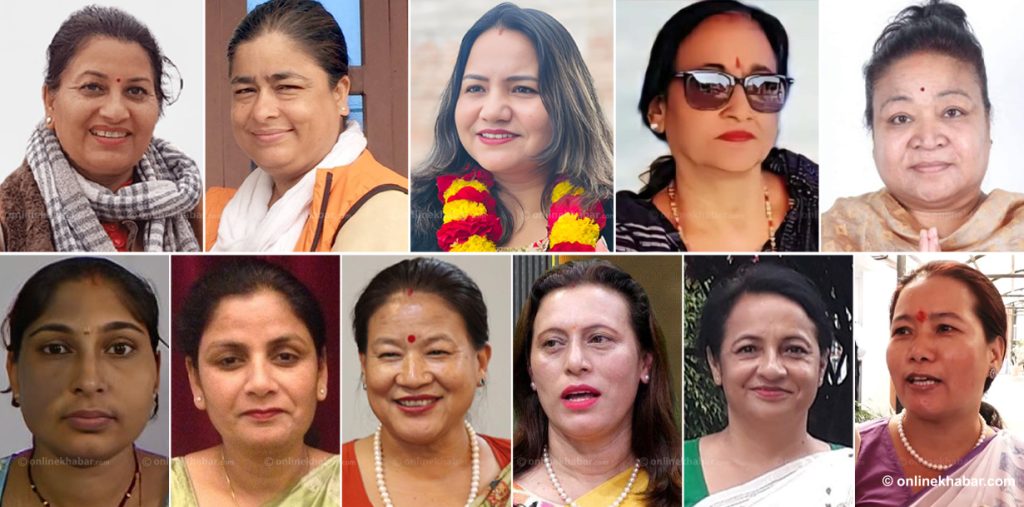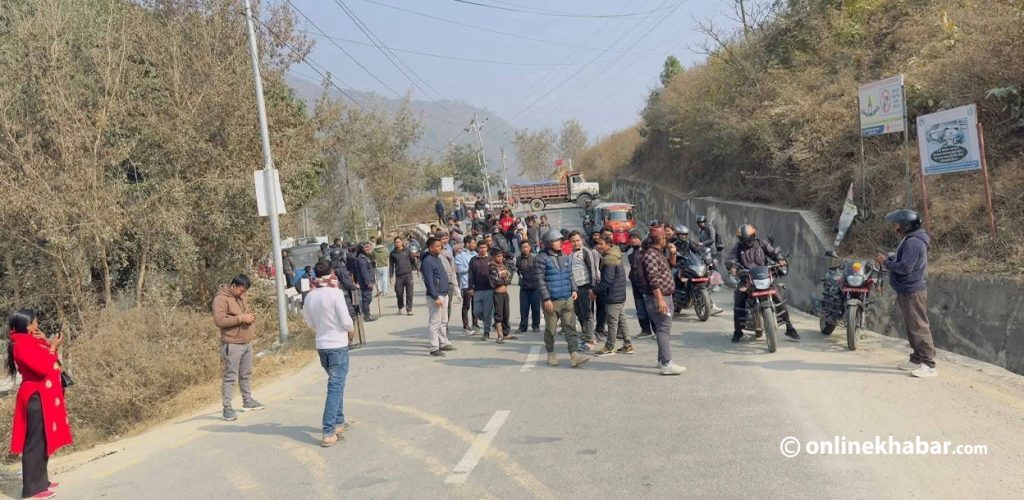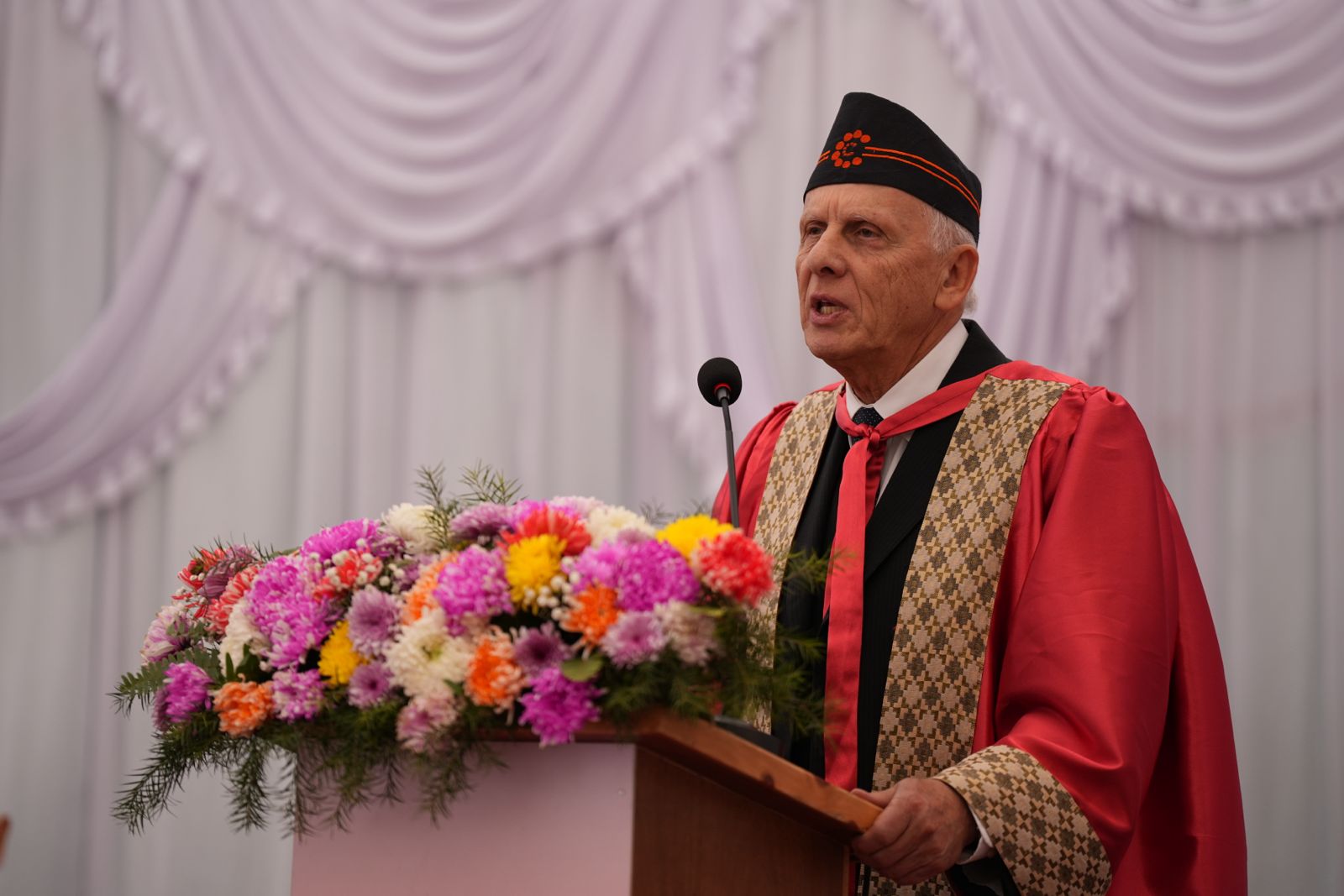
After a ligament tear on his knee in 2021, Avishek Shrestha stopped playing futsal. After the injury during a match, doctors recommended he take a break of at least two years. But when he got a call from his friends asking him to play in a tournament in December 2022, he could not say no.
“The World Cup was on and I was itching to play. I’d been away from it for over 18 months and when I got back, I was like I never left,” says Shrestha.
Winter months are considered to be an off-season for futsal in Nepal, but this year, things were different. Thanks to the first-ever winter World Cup, most futsal grounds were packed. According to data, bookings in some futsal arenas in Nepal rose by up to 200 per cent during the World Cup. This came as a much-needed reprieve to futsal owners, many of whom were struggling as they had only opened sporadically during the Covid pandemic that hit the country hard for two years.
After a few years of struggle, things are looking up. But that said, many fear with poor policy and unhealthy competition, futsal in Nepal as a business is facing multiple hurdles.
However, despite these obstacles, the Nepali futsal community remains committed to promoting and growing the sport. Local tournaments and leagues are being organised and players are working to develop their skills and improve the quality of play.
Early days of futsal in Nepal

Raj Maharjan started Dhuku Fustal Hub in Baluwatar of Kathmandu in 2013. A fan of football, he saw a lot of potential in futsal in Nepal and invested heavily to set up two futsal courts in the same place. The early years were great for him as people from all over the valley came to play.
“There were hardly 50 futsal courts back then so we got a lot of business. When the 2014 FIFA World Cup came around the corner, everyone wanted to play,” says Maharjan.
It was not just Dhuku that was doing well. Futsal in Nepal as a business across the valley started to boom. Almost every futsal ground during the 2014 World Cup was full with some earning around Rs 1 million a month.
By the next World Cup in 2018, there were nearly 200 futsal courts in the valley. This meant what happened in 2014 did not repeat in 2018.
“That discouraged a few people as they didn’t get a bigger slice of the pie. But things were sustainable,” says Maharjan.
The fall and the rise

What did not help futsal in Nepal as a business was what happened in 2016 when the police ordered that all futsal courts in the valley be closed. The police took such a decision, stating people misused the facilities to take illegal drugs and get involved in unsocial activities. People who lived near futsal courts had also filed complaints that these courts obstructed the peace and order of society.
“That was tough because these people had a prejudice that everyone did drugs in futsal courts. Society didn’t understand the game and the potential it had,” says Thamman Bhusal, a futsal operator who has built over 200 courts all over Nepal.
Times changed, as did people’s perceptions, thanks to the corporate sector that started to play futsal in Nepal regularly. But, then came the Covid pandemic and government restrictions, which put everything to a standstill.
“The two years of Covid hit us bad. None closed but everyone incurred losses as these businesses aren’t cheap,” says Bhusal.
WePlay Nepal, an application that helps players book futsal, has been witnessing this trend. Smriti Bajracharya Branding and Communication Head at WePlay Nepal says even though the past few years were tough on businesses, the World Cup in Qatar brought a much-needed reprieve to futsal in Nepal.
She says that they expected bookings to go further down than during the festive period, which was also hit by dengue, but things went surprisingly smooth after the group stage.
“We assumed bookings would further slow down as the match timings clashed with the player’s usual playing hours. But, booking requests increased by 188 per cent from when the World Cup started,” says Bajracharya.
She says most players were willing to play at any location, regardless of the distance.
“It seemed as long as they got to play, the distance travelled did not pose a big issue. We also noticed a rise in bookings placed late at night, especially after the match had ended,” she says, adding the World Cup hangover is continuing in futsal in Nepal despite the final being played over a month ago.
Bhusal feels futsal culture has changed too over the years. The players and their mindsets have changed. They are more disciplined and come with proper gear. The courts have changed too as the owners have realised the need to improve them.
“I’ve evolved too as doing it for 10 years has made me better equipped to make better courts,” says Bhusal, who now gives people a general idea of how to do the business of futsal in Nepal.
What does the future hold?

But, there are challenges, he says. While government and policy-related challenges are always going to plague them, a lack of land in the Kathmandu valley is another issue that businesses face at the current times. Nonetheless, futsal in Nepal as a culture is dispersing across the country.
“There will come a time when people will stop leasing land to futsal grounds in Kathmandu because the prices are too high. I see a future when most of the futsal courts in Kathmandu will relocate away from the valley,” says Bhusal.
Maharjan feels that this will happen sooner than later. His family have been pressuring him to sell the land where he is running Dhuku Futsal Hub.
“I’ve convinced them how bad a decision that would be,” he says.
That said, he does feel that maybe the business of futsal in Nepal will feel the pressure as the books will stop balancing in the long run. He argues that businesses are offering their services for cheap. With the competition now extremely unhealthy as most refuse to set a standard price, Maharjan feels most will definitely shut down as operating costs continue to go up.
“When businesses start to shut down, the price will automatically go up,” says Maharjan.
But, Bhusal sees things differently. He feels that most businesses will move to the outskirts of the valley where land is cheap.
Both say that the government has failed to capitalise on the sport. The Futsal League that took place in 2022 did the sport a lot of good and a team even took part in the Asian Futsal Cup qualifiers.
But that was that and after that, nothing much has been done. Consequently, the national futsal team’s captain and star player Anish Shrestha quit.
“The league was important for futsal in Nepal getting a positive image, but more needs to happen.”
When asked if unofficial leagues could take place in the valley, both Bhusal and Maharjan say not everyone shares the same sentiment.
“People here aren’t as passionate as I am. Most don’t want to spend time creating a team as they feel it’s an expense. They don’t see the bigger picture,” says Maharjan.
Photos: WePlay Nepal





















